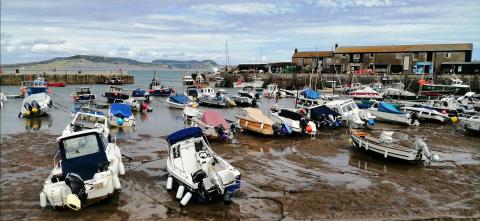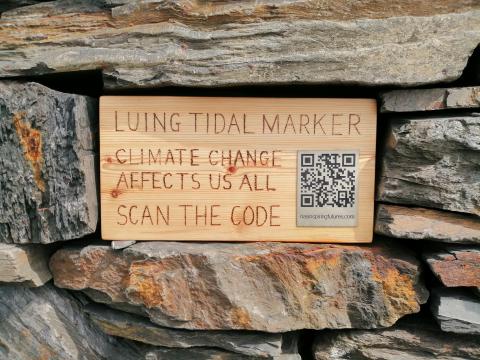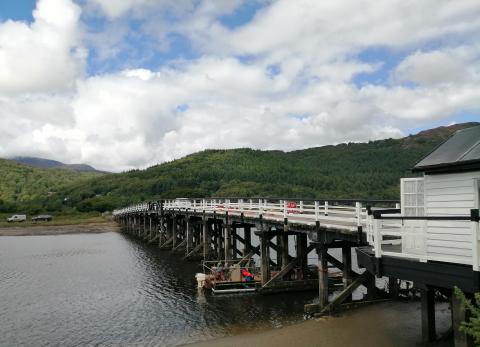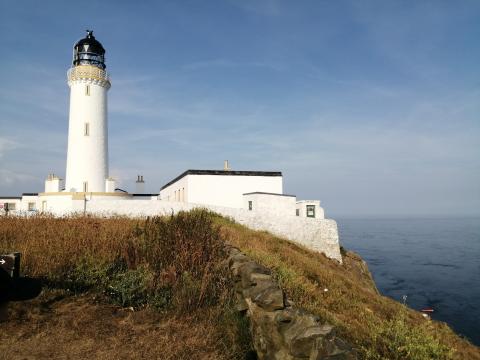Climate change risks to coastal communities, and particularly health and wellbeing, have been identified as a major knowledge gap by MCCIP in our reviews of physical, ecosystem and societal impacts of climate change, largely due to the scarcity of published evidence.
An initial rapid validation exercise by MCCIP, research and policy experts confirmed that critical and wide-ranging gaps in our understanding of climate change impacts persist, particularly relating to people’s health and wellbeing.
The validation also highlighted that there are many barriers preventing effective climate adaptation in coastal areas.

A new MCCIP project, Climate change risks to COastal COmmunities and their health and wellbeing (COCO), aims to explore in more detail the threat of climate change to coastal communities and their wellbeing.
The project is developing community-led solutions to some of the barriers blocking current adaptation interventions, contributing to a UK-wide network of experts, practitioners, stakeholder and coastal community groups, and advancing the knowledge base.
MCCIP has undertaken a major UK-wide stakeholder consultation to gain a deep insight into barriers to climate change adaptation for coastal communities in the UK, and to explore opportunities for positive action. The COCO Consultation Report is now available here.

The consultation was shared with a wide range of stakeholders from across the UK, including national and local government and agencies; industry; coastal partnerships; research; utilities; infrastructure and transport; health services; NGOs; tourism; and emergency services.
The consultation revealed a total of 150 individual barrier statements grouped into the broad categories shown below, which shows the complexity of these issues:
- Competing priorities
- Scientific evidence
- Engagement
- Financial constraints
- Mindset
- Government policy and procedure
- Knowledge and skills
- Physical, social and economic constraints
The full list of barrier categories and detailed descriptions can be found in Appendix B of the COCO Consultation Report, here.
During the second part of the consultation, stakeholders structured and prioritised the barriers and proposed options to help overcome the key barriers. A total of 57 options were generated, broadly belonging to the following categories:
- (Improved) knowledge and skills
- (More) integrated approaches
- (Better) public discourse
- (Better targeted) funding opportunities
- (Better targeted) policy, legislation and guidance
- (Climate ready) stakeholder fora
The full list of options can be found in Appendix C of the COCO Consultation Report, here.

The COCO project is collaborating with climate resilience experts, practitioners and coastal hubs from across the UK, and we will seek to promote key climate resources and initiatives supporting coastal communities on their journey to become more climate resilient.
Some examples of resources and positive action are:
- Coastal Communities and Seas Together for Resilience, COAST-R Programme, University of Hull
- Climate Cares Centre, Imperial College London
- Coastal Adaptation Programme and the National Habitat Creation Programme, Natural Resources Wales
- Dynamic Coast, Coastal Change Adaptation, Scottish Flood Resilience Forum
- Climate Outreach
- SEPA Flood Maps, Scotland
- EA National Assessment of Flood and Coastal Erosion Risk, England
- mNCEA Socio-Cultural Values of Coastal Areas - East Coast Sense of Place Interactive Map

Working with our MCCIP partners and other collaborators, COCO will help bridge the gap between science and people by translating climate hazards research into accessible outputs with coastal community groups in mind.
We are also hoping to deliver practical coastal adaptation activities during 2025-26.
